Why You Can’t Ignore Diabetes Nighttime Signs
Diabetes management is not just a daytime activity. As the Journal of Clinical Sleep Medicine suggests, nearly 50% of those with Type 2 diabetes experience sleep problems, which are mostly noticeable at night. Meanwhile, the American Diabetes Association reminds us that the financial cost of diabetes is an astronomical $327 billion per year, but what about the cost of compromised sleep? Let us dive deep into Diabetes Nighttime Signs!
With such compelling data, especially that shocking number from the Journal of Clinical Sleep Medicine, it’s clear that diabetes isn’t just a daytime condition. So, the cost of ignoring nighttime symptoms is not only financial but also physical and emotional.
So stick around, as we unravel the “12 Diabetes Nighttime Signs You Can’t Ignore!”
Identifying The 12 Diabetes Nighttime Signs
12. Snoring
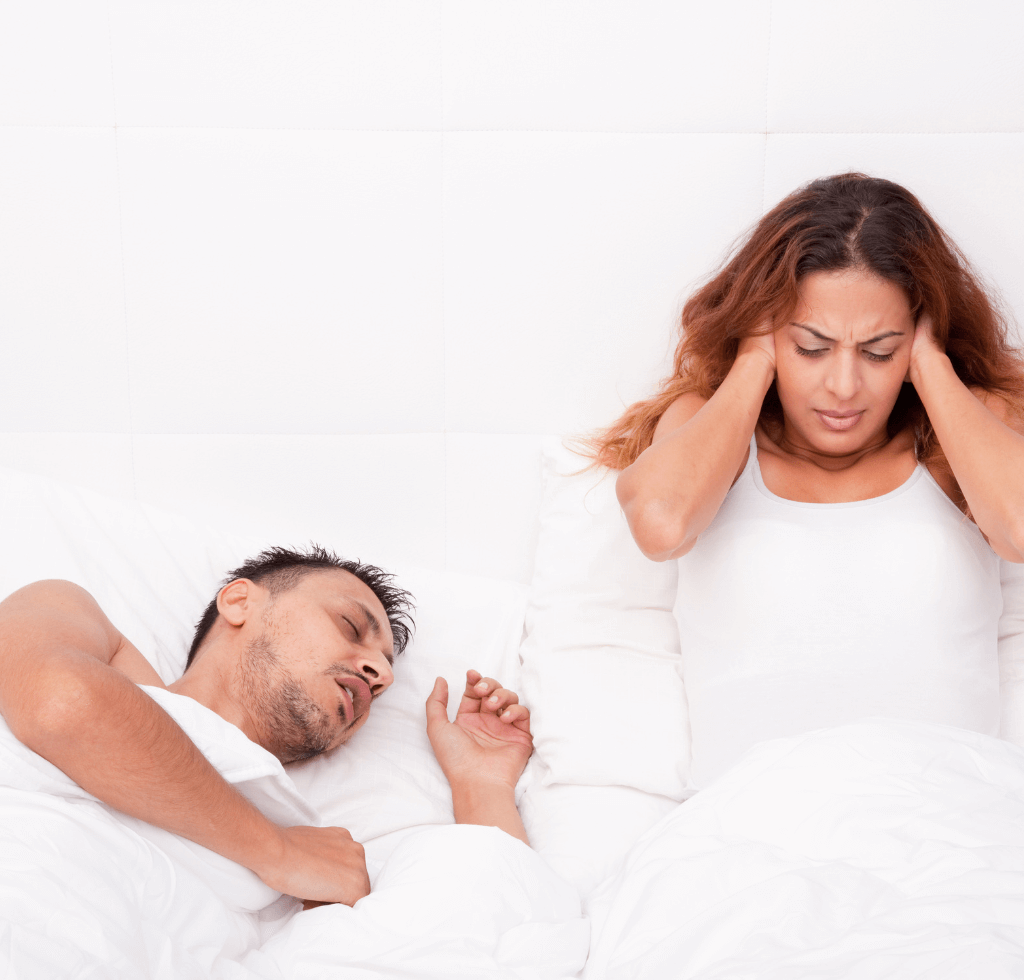
Don’t dismiss snoring as just an annoying habit; it could be much more. Studies like those published in the journal Sleep have found a link between regular snoring and insulin resistance, a major red flag for diabetes.
- What’s happening in your body when you snore? Each snoring episode briefly interrupts your breathing, triggering a stress response. This results in a spike in stress hormones like cortisol, which can mess with your blood sugar levels.
- What can you do? Before panicking, try some lifestyle changes like losing weight, reducing alcohol intake, or changing your sleep position. If snoring persists, consult a healthcare provider for a sleep study and possibly, a diabetes screening.
Remember, snoring isn’t just a nuisance; it could be your body’s way of sounding an alarm.
11. Sleep Disturbances
Next up is sleep disturbances, and we’re not talking about occasional nightmares. We mean the kinds that wake you up and keep you up. Research in the Journal of Sleep Research suggests that these disturbances are often linked to poor glucose control.
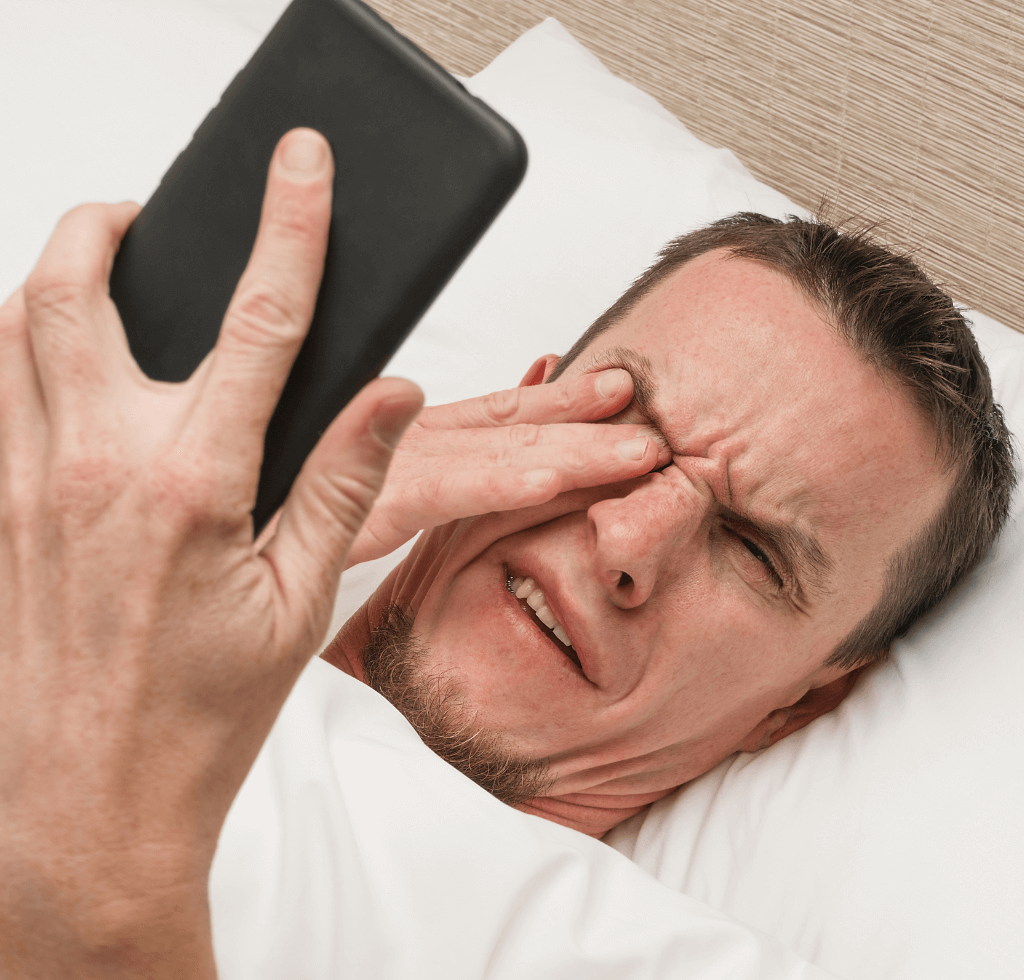
- Why is it a problem? Constant waking during the night interrupts sleep patterns, potentially exacerbating diabetes symptoms.
- Solutions: Consider transforming your bedroom into a sleep sanctuary with dark shades or white noise machines. However, if the issue persists, it’s time to consult your healthcare provider for a more in-depth analysis, which may include medications to regulate sleep.
10. Leg Cramps
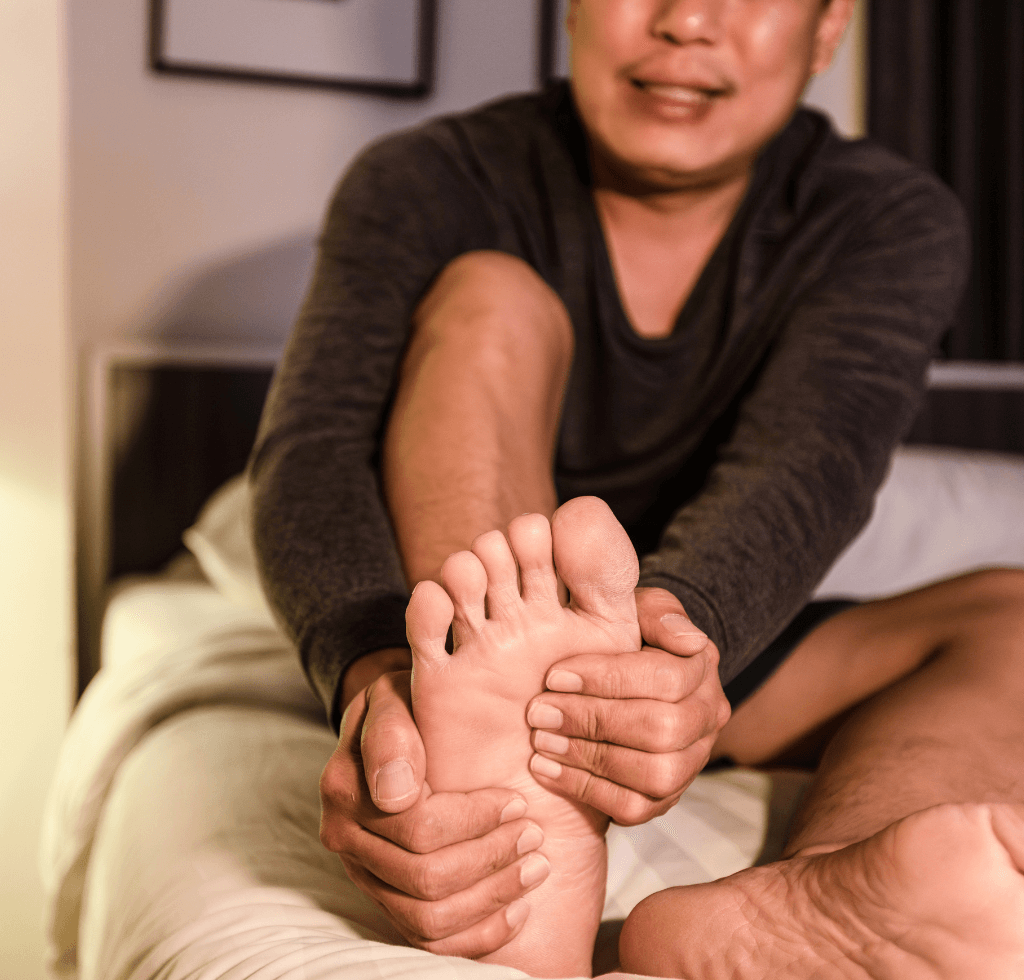
If you’ve ever been jolted awake by the agonizing pain of a leg cramp, you know it’s no laughing matter. These muscle spasms can bring even the soundest sleeper to their knees, so to speak. But have you ever paused to think that these leg cramps could be your body’s way of warning you about your diabetic condition?
- The Connection with Diabetes: Believe it or not, these cramps may be a byproduct of high sugar levels in the blood. Your body relies on a delicate balance of sugar and electrolytes to function. When that balance is thrown off, cramps can be one of the consequences.
- What Can You Do?
- Hydrate: Proper hydration can sometimes alleviate cramps. This helps replenish lost electrolytes and aids in muscle function.
- Light Exercise: Gentle stretching can help relax the muscle and relieve the cramp.
- Massage: A gentle rub can stimulate blood flow to the cramped muscle, helping to relieve the spasm.
- When to Seek Medical Help: If your leg cramps become a recurring issue or intensify, it’s imperative to consult a healthcare provider. Persistent cramps could signify a greater imbalance in your body’s sugar and electrolyte levels.
Note to self: A leg cramp might be more than just a painful inconvenience; it could be a hint that your diabetes needs better management.
9. Night Sweats
Welcome to Sign Number 9: Night Sweats. While drenched pajamas and damp sheets might be caused by various factors like a stuffy room or a scary dream, they might also be a tell-tale sign of something far more serious: hypoglycemia, or low blood sugar levels.

- Why It Happens: When your blood sugar drops too low, your body goes into a kind of panic mode, triggering a sweat response. It’s your body’s way of telling you that you’re in a state of hypoglycemia.
- Home Remedies:
- Adjust Room Temperature: A cooler room can sometimes alleviate night sweats.
- Breathable Fabrics: Using breathable, moisture-wicking fabrics can help keep you dry.
- Cool Shower: A lukewarm or cool shower before bed can help regulate body temperature.
- When to Consult a Professional: If you find that you’re persistently waking up in a pool of sweat, it’s time to talk to a healthcare provider. Ignoring night sweats could mean overlooking dangerously low blood sugar levels, which is not something you want to gamble with.
Heed the sweat: If you’re sweating excessively at night, it’s not something you can afford to brush aside. It could be your body signaling that your diabetes is poorly controlled.
8. Dry Mouth
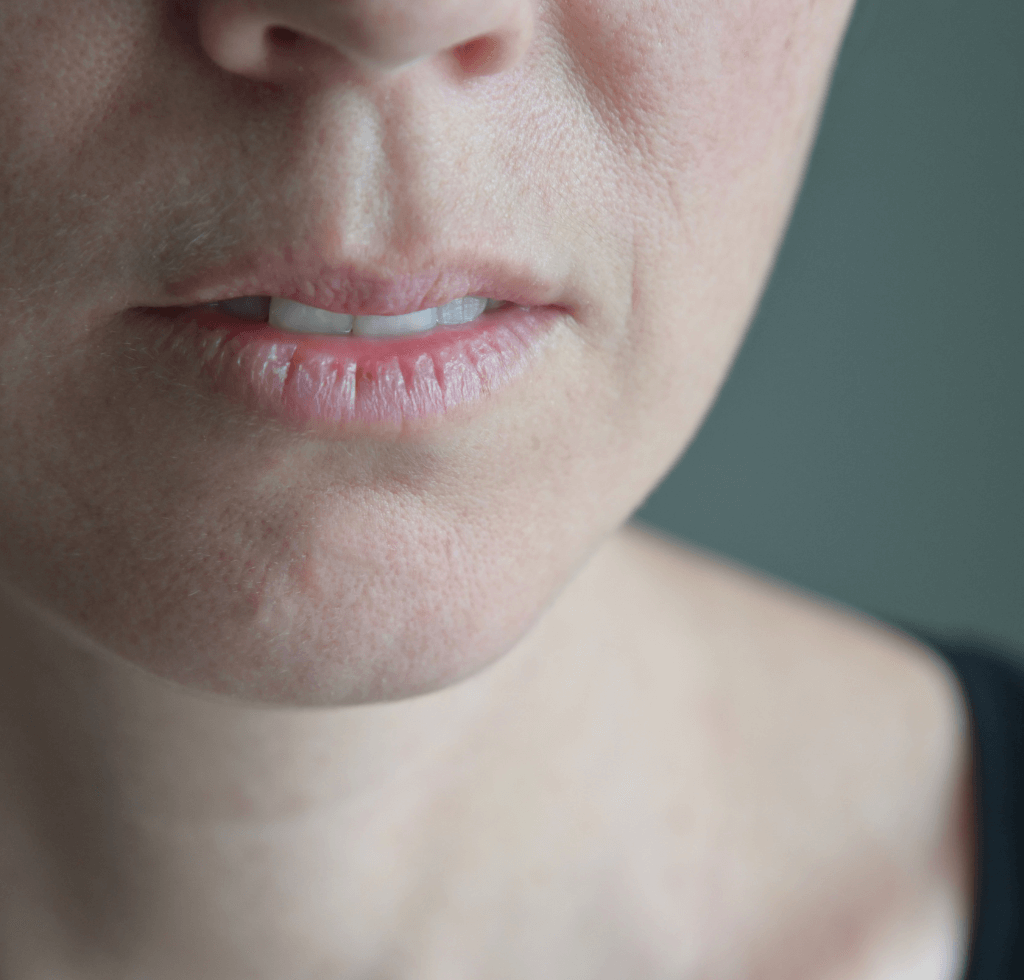
Sign Number 8: Dry Mouth, a condition that can leave you feeling like you’ve spent hours trekking through a desert, even if you’ve simply been getting some much-needed shut-eye. While it’s easy to dismiss this as mere thirst or perhaps the byproduct of a salty meal, chronic dry mouth may be more than an isolated issue; it could be a tell-tale sign of diabetes.
- Understanding the Diabetes Connection: Studies published in Diabetes Care highlight the relationship between persistent dry mouth and elevated glucose levels. Diabetes can affect your salivary glands, reducing saliva production and leaving you parched.
- Potential Risks: Chronic dry mouth isn’t just a nighttime annoyance. It can escalate into dental issues like cavities, gum diseases, and even oral infections.
- Remedies and Relief:
- Sip on Water: Hydrate by taking small sips of water throughout the night.
- Sugar-Free Gum: Chewing gum can help stimulate the salivary glands.
- Saliva Substitutes: Over-the-counter options can provide temporary relief.
- When to Take Action: If you consistently experience dry mouth, it’s essential to seek professional advice. Chronic dry mouth could signify more significant health concerns that need a multifaceted treatment approach.
In summary, dry mouth might be more than just an inconvenience; it could be your body’s subtle way of telling you to check your glucose levels.
7. Vision Changes
Proceeding to Sign Number 7: Vision Changes. Imagine settling into your nighttime routine only to notice that objects appear fuzzier or that you have a hard time adjusting to dim lights. While it’s tempting to attribute this to aging or fatigue, persistent vision issues can signify something more concerning, like diabetes-related eye complications.
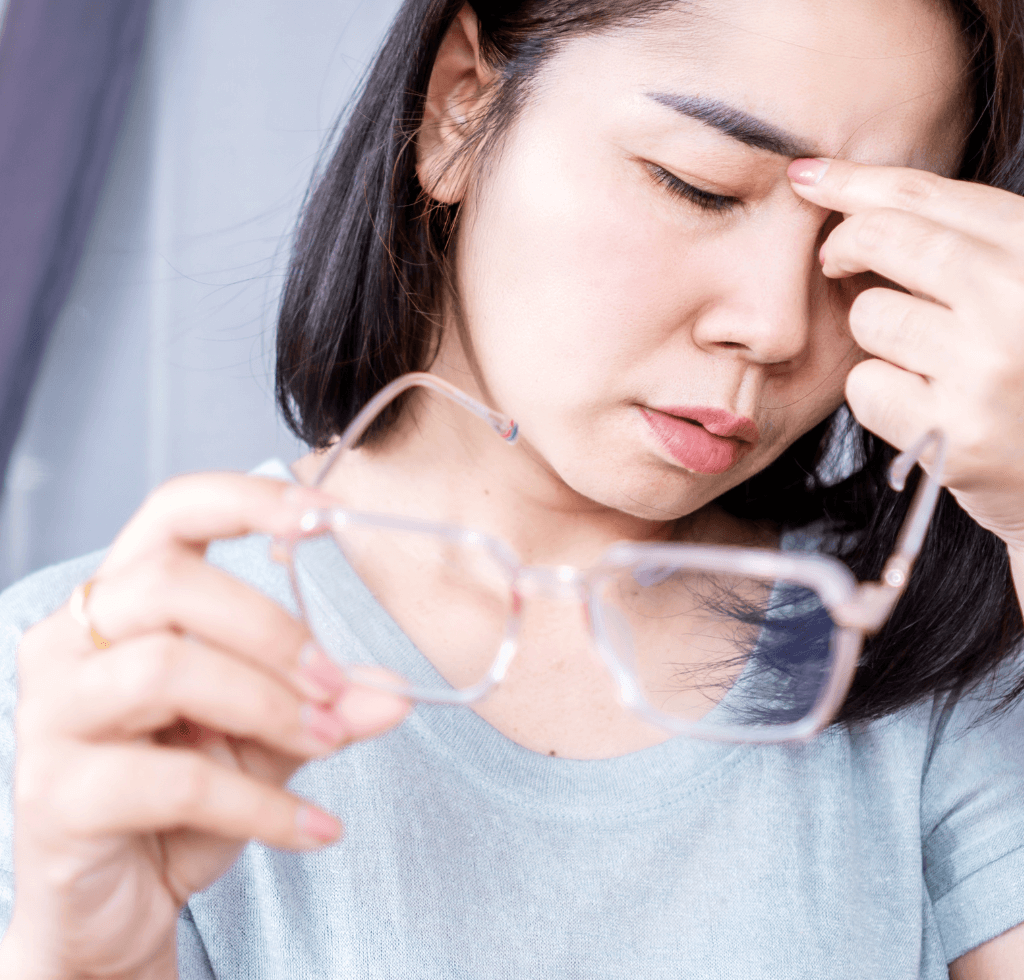
- The Link to Diabetes: Research in the field of Ophthalmology suggests that diabetes can affect vision, leading to conditions such as retinopathy or even cataracts.
- Long-Term Impact: Failing to address vision changes can lead to permanent eye damage and compromise your quality of life.
- Proactive Measures:
- Rest Your Eyes: Ensure you’re giving your eyes the break they need, especially if you use digital devices.
- Diet: A balanced diet, rich in essential vitamins like A, C, and E, can support eye health.
- Blue-Light Blocking Glasses: These can help minimize eye strain if you’re using screens before bed.
- Taking It Seriously: If you notice a consistent pattern of vision changes, particularly at night, a comprehensive eye examination is in order. This can reveal not only the state of your eye health but also flag other systemic health issues.
In a nutshell, don’t sweep vision changes under the rug. These could be your eyes’ way of alerting you to internal issues that you may otherwise overlook.
6. Restlessness or Irritability

As we continue our deep dive into the realm of diabetes and its nighttime signs, coming in at Number 6 is Restlessness or Irritability. Now, these aren’t just fleeting emotional states or isolated incidents of ‘having a bad night.’ This could be your body signaling a more systemic issue related to diabetes.
- The Diabetes-Mood Connection: Research published in journals like “Diabetes Care” and “Psychoneuroendocrinology” has found connections between diabetes and mood fluctuations, including heightened levels of restlessness and irritability. The mechanism behind this is thought to be related to how elevated blood sugar levels interact with neurotransmitters in the brain, leading to mood imbalances.
- Signs to Look For:
- Uncontrollable restless energy.
- Irritability affecting your interactions with others.
- Feeling unsettled for no apparent reason.
- Managing the Issue:
- Blood Sugar Management: Maintaining balanced blood sugar through medication, diet, and exercise.
- Behavioral Therapies: Cognitive Behavioral Therapy (CBT) has shown promise in treating mood symptoms connected to diabetes.
- Next Steps: If you find that your nighttime irritability and restlessness persist, it’s crucial to consult healthcare professionals. A comprehensive diagnosis can guide a treatment plan that addresses both your emotional and physical well-being. Remember, managing diabetes isn’t just about physical symptoms; your emotional health is a vital piece of the puzzle.
5. Fruity Breath Odor
Switching gears to a sign that requires immediate attention—Sign Number 5: Fruity Breath Odor. While the smell might initially come off as sweet, this could be indicative of a severe medical emergency known as ketoacidosis.
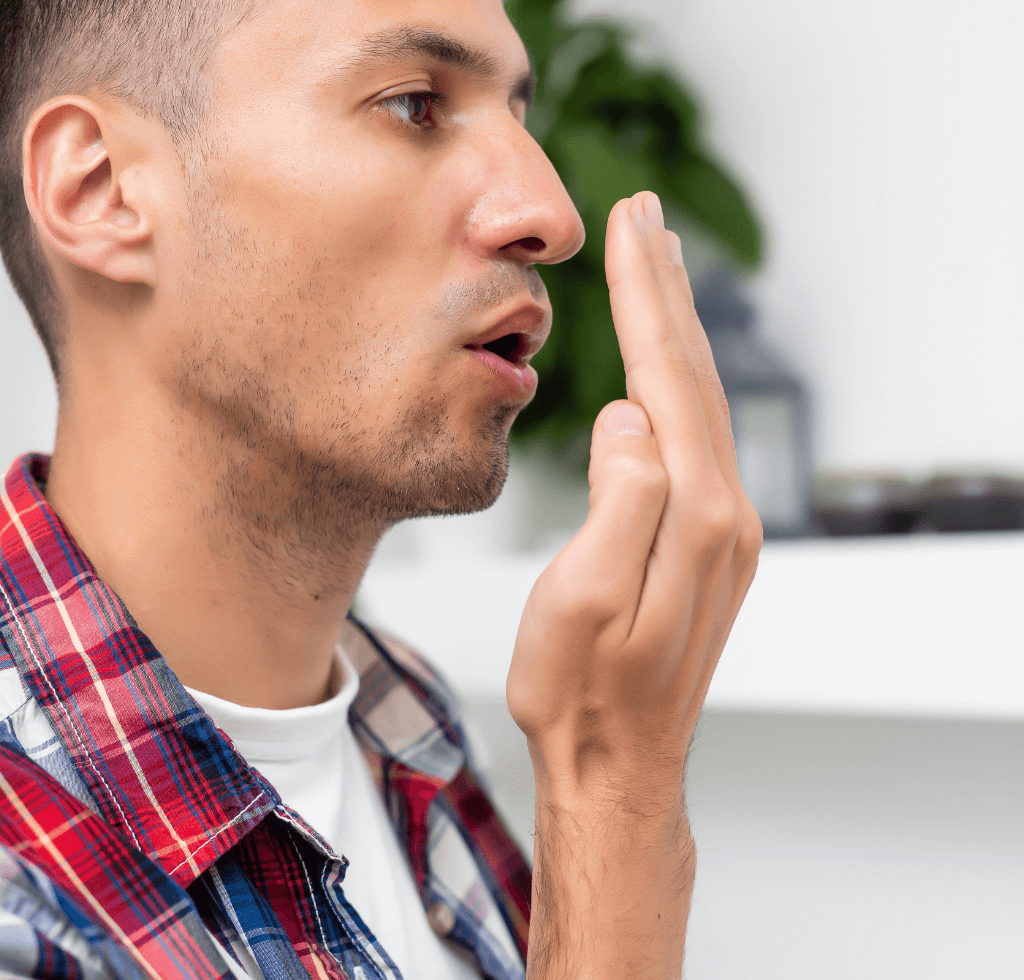
- The Ketoacidosis Warning: Ketoacidosis occurs when your body starts breaking down fat too quickly, producing ketones, which lead to a distinct fruity breath odor. Left untreated, this condition can be life-threatening.
- What to Do:
- Immediate Medical Attention: If you or someone near you detects a fruity breath odor, it’s vital to get to a healthcare facility as soon as possible.
- No Time for Home Remedies: This is not the time to resort to breath mints or other home remedies. Immediate medical intervention is crucial.
- Additional Steps:
- Regular Monitoring: People with diabetes should regularly monitor their blood sugar and ketone levels to avoid conditions like ketoacidosis.
- Educate Close Contacts: Make sure family and friends know about this sign, so they can act promptly if they notice it.
In summary, while fruity breath odor might sound innocuous, it’s a red flag that requires urgent medical attention. Likewise, restlessness and irritability can be signs of deeper emotional disturbances related to diabetes that should not be ignored.
4. Nighttime Frequent Thirst
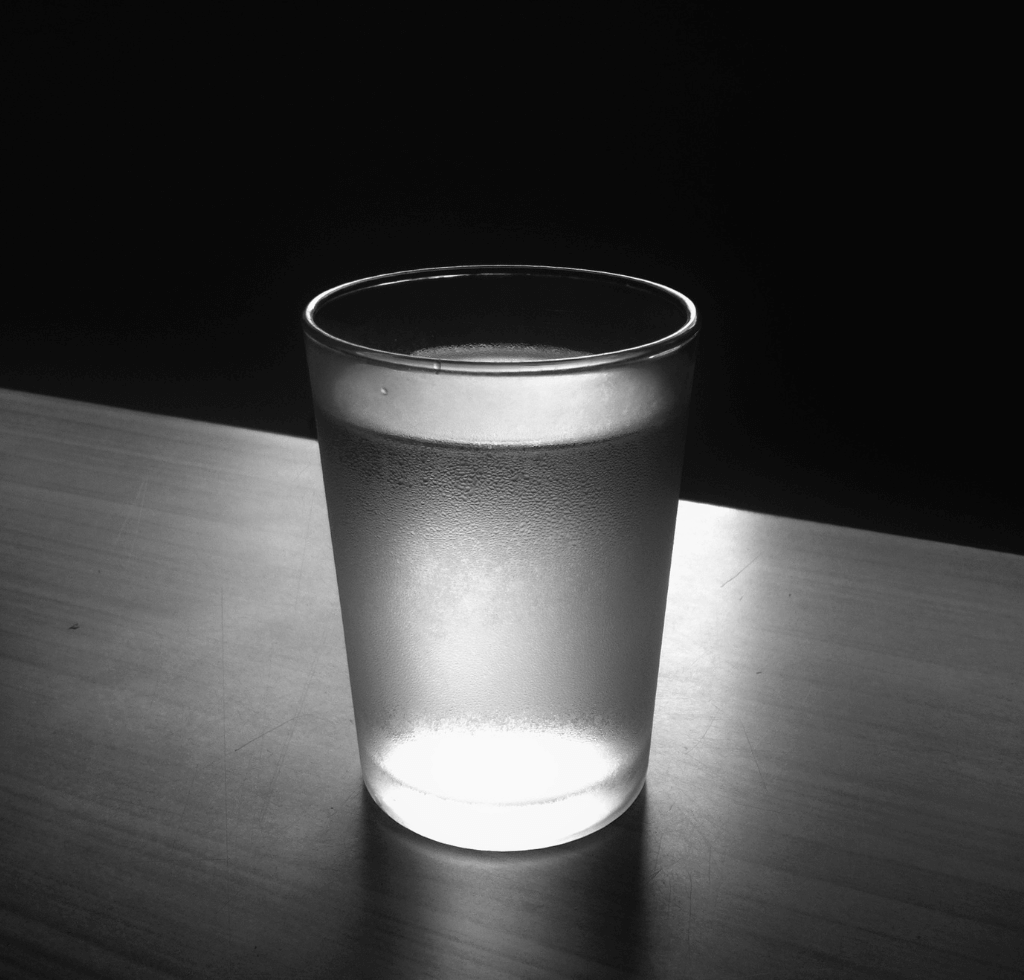
Let’s delve into a sign that may seem innocuous but can indicate a larger issue—Nighttime Frequent Thirst, taking our fourth spot on the list. This symptom goes beyond a simple sip to quench your thirst; we’re talking about an insatiable need for hydration that keeps you up and raiding the fridge for water.
- The Science Behind the Thirst: Elevated blood sugar levels are the culprits here. They leech moisture from your tissues, leaving you feeling parched. Your body, in its innate wisdom, is trying to correct the imbalance by making you thirsty, urging you to dilute the high sugar concentration in your blood.
- Signs to Look For:
- Repeatedly waking up to drink water.
- Feeling excessively thirsty despite drinking ample fluids.
- Dry or sticky mouth.
- Managing the Issue:
- Blood Sugar Management: Keeping track of your glucose levels and adhering to a diet that aligns with diabetes management can help alleviate frequent thirst.
- Hydration Strategy: Hydrating throughout the day but tapering fluid intake closer to bedtime can assist in reducing nocturnal thirst episodes.
- Next Steps: If you’re still experiencing persistent thirst despite making adjustments, it’s critical to seek professional healthcare advice. A comprehensive medical evaluation can rule out other underlying issues and help tailor a treatment plan to your specific needs.
3. Nocturia
Stepping into the top three, we have Nocturia, or the frequent need to urinate during the night. While a nocturnal bathroom trip now and then is entirely normal, excessive episodes could be your body waving a red flag at you.
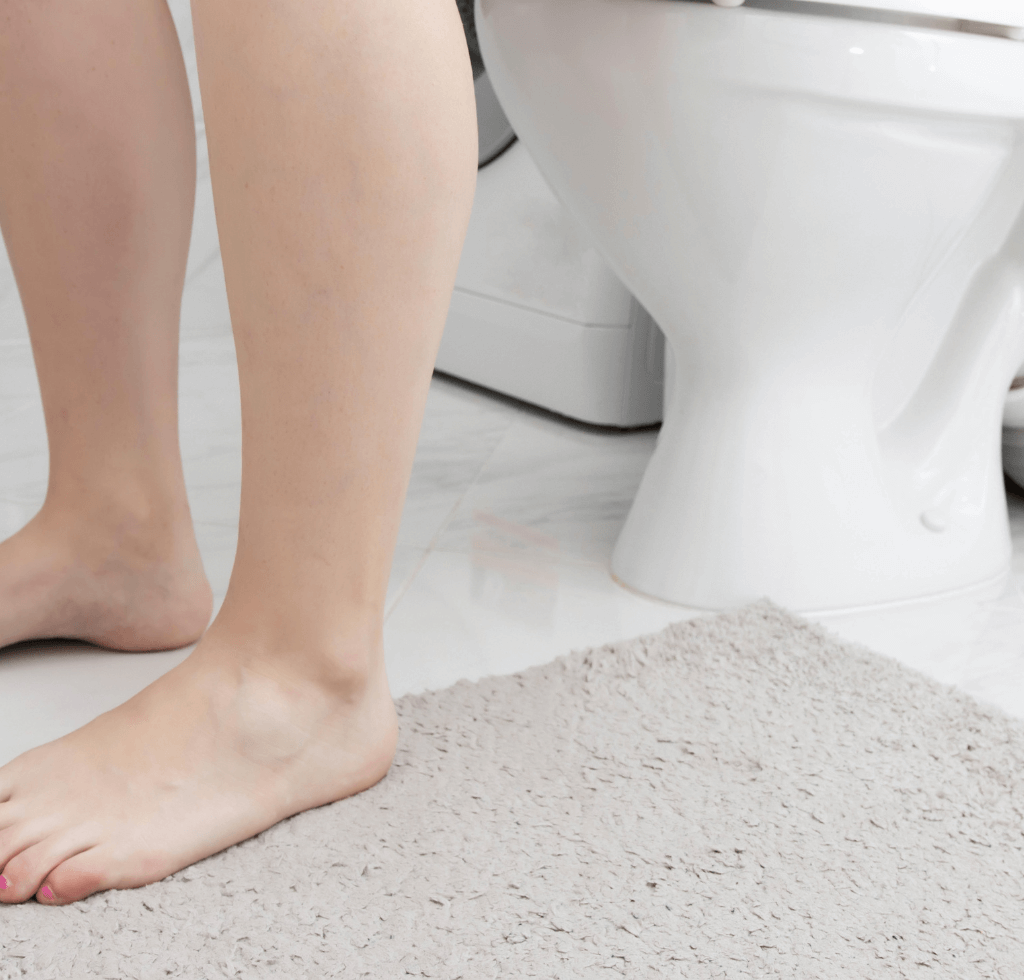
- Research Insights: Studies, such as those published in The Journal of Urology, have highlighted a connection between nocturia and elevated glucose levels. Far from being just an annoying interruption to your sleep, nocturia can signify diabetes or its complications.
- Signs to Look For:
- Waking up more than twice a night to urinate.
- Experiencing a persistent urge to urinate, even after going.
- Not feeling fully rested in the morning due to frequent bathroom trips.
- Managing the Issue:
- Limit Fluids Before Bed: Reducing your fluid intake a couple of hours before hitting the sack can minimize the frequency of nocturia.
- Avoid Diuretics: Substances like caffeine and alcohol can exacerbate nocturia; steering clear of them, especially before bedtime, can be beneficial.
- Next Steps: If you find that your nighttime bathroom trips aren’t subsiding despite your best efforts, it’s time to consult a healthcare provider. A thorough medical evaluation can pinpoint the exact issue and offer tailored treatment options that will not only relieve the symptom but also improve your overall sleep quality.
2. Sleep Apnea
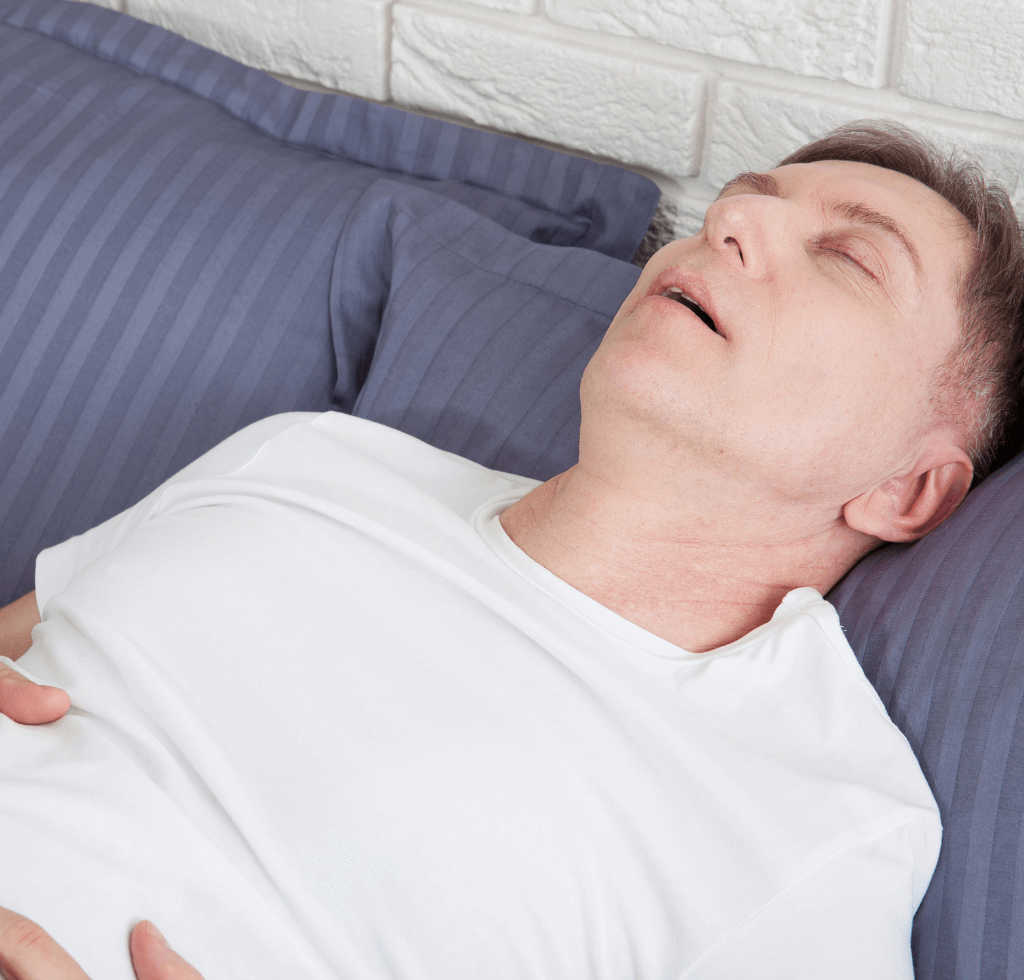
Taking the runner-up spot on our list is Sleep Apnea—a disorder characterized by repeated pauses in breathing during sleep. This is far from a benign snoring issue; it’s a condition that could be intertwined with diabetes.
- The Science Behind It: Sleep apnea has been found to be significantly more common among people with diabetes, according to research published in “Chest” journal. The relationship is somewhat of a vicious cycle: Sleep apnea can contribute to insulin resistance, and diabetes can exacerbate sleep apnea symptoms.
- Signs to Look For:
- Loud snoring with pauses in breathing.
- Waking up suddenly, gasping or choking.
- Feeling excessively tired during the day despite sleeping through the night.
- Managing the Issue:
- CPAP Machine: The most commonly recommended treatment for sleep apnea is Continuous Positive Airway Pressure (CPAP) therapy.
- Lifestyle Changes: Weight loss and exercise can often improve sleep apnea symptoms.
- Positional Therapy: Some find relief by altering their sleep position to aid in unobstructed breathing.
- Next Steps: Persistent sleep apnea symptoms require immediate medical attention. A sleep study may be recommended to evaluate the severity and tailor an appropriate treatment plan.
1. Nighttime Hypoglycemia
Taking the top spot is Nighttime Hypoglycemia or low blood sugar levels during the night, a condition that can be both stealthy and dangerous.

- The Science Behind It: The risk of hypoglycemia increases during sleep for people with diabetes, especially those on insulin therapy. This is due to multiple factors like an imbalance in medication, missed meals, or excessive exercise.
- Signs to Look For:
- Waking up with a headache.
- Experiencing night sweats.
- Feeling excessively tired upon waking.
- Managing the Issue:
- Nighttime Monitoring: Consider setting alarms to check your blood sugar levels at night.
- Snack Before Bed: A complex carbohydrate snack before bedtime can help stabilize blood sugar levels.
- Medication Review: Consult your healthcare provider to ensure your medication regimen is well-balanced and effective.
- Next Steps: Nighttime hypoglycemia is a serious condition that requires immediate medical attention. Consult your healthcare provider for a thorough evaluation and a personalized treatment plan.
Wrapping Up the Nighttime Signs
In summary, these Diabetes Nighttime Signs—from sleep apnea to hypoglycemia—are not to be dismissed as mere disturbances or discomforts. They could very well be indicators of diabetes or other serious health issues. Always take note of persistent symptoms and consult healthcare providers for an accurate diagnosis and a tailored treatment plan.
For more insights, please watch this video:
FAQs
- Q: Can these Diabetes Nighttime Signs appear together?
- A: Yes, multiple signs can manifest simultaneously, further emphasizing the need for a comprehensive healthcare consultation.
- Q: Are these Diabetes Nighttime Signs exclusive to diabetes?
- A: No, these symptoms can be indicative of other health issues as well. However, their co-occurrence or persistence can signal an elevated risk of diabetes.
- Q: What’s the first step if I notice these symptoms?
- A: The initial step should always be to consult a healthcare provider for a comprehensive evaluation and diagnosis.
- Q: Can lifestyle changes alleviate these symptoms?
- A: Lifestyle changes like a balanced diet, regular exercise, and proper sleep hygiene can certainly help, but they’re not a substitute for professional medical advice and treatment.




